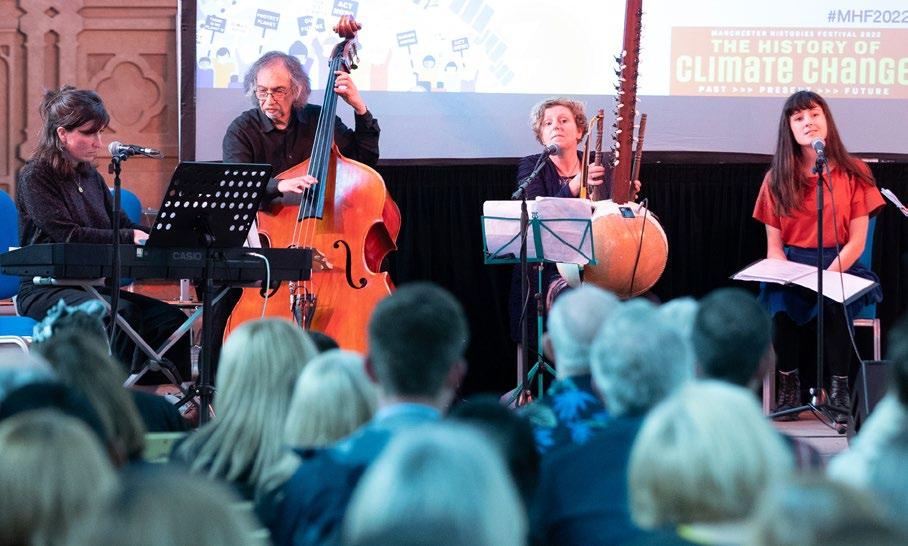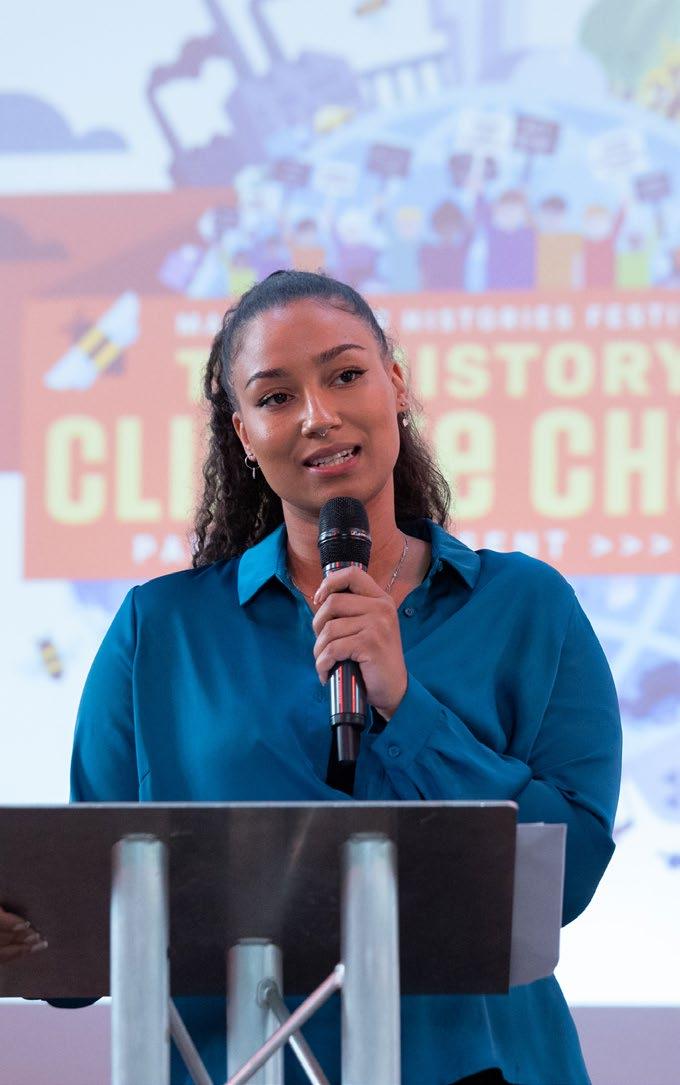
2 minute read
Opening Night
Louise Wallwein

Billie Meredith

The Opening Night on Wednesday at the Manchester Monastery launched the eighth edition of the festival and provided an opportunity for people to come together in person for the first time since the pandemic to experience a heritage event.
Opening nights are an integral part of the festival as it brings people together to network and to have conversations about history and heritage. These encounters often spark new relationships, ideas, and collaboration for future work. More broadly, it also provides audiences with a chance to hear more about the festival programme and meet the volunteers who encourage them to take part in further festival activity.
What a brilliant festival it has opened my eyes to see things more clearly about the history of climate change through seeing a creative piece of work. A brilliant way to get a message across.
Audience Member, Feedback Form.
The programme included a poignant opening speech on the history of climate change by historian & broadcaster Michael Wood. Councillor Luthfur Rahman, Deputy Leader of Manchester City Council also gave an inspirational speech around Manchester becoming a zero-carbon city by 2038 and how culture can support climate change and action. Lastly, a short film was premiered which showcased the fantastic performances from young people and artists from across Greater Manchester, and the Manchester International Roots Orchestra delighted audiences with their beautiful and unique music from across the world.
MIRO
Listening to MIRO perform, the aesthetics of the monastery gave atmosphere and sense of history to the event, such unique settings, felt that the youth group that performed was a well researched topic.
Audience Member, Feedback Forms
Likewise, it gave these young people a chance to tell their stories and create responses to the history of climate change in a professional environment and to a live audience. In this way, this kind of work supports the festival in providing opportunities to their local communities and supporting young people to grow their confidence and develop their creative and research skills.
Unfortunately, audience numbers were lower in comparison to previous festival launches. This may be due to people still feeling reluctant to return to live cultural activities after the pandemic and that the location was harder to reach via public transport (see recommendations).







